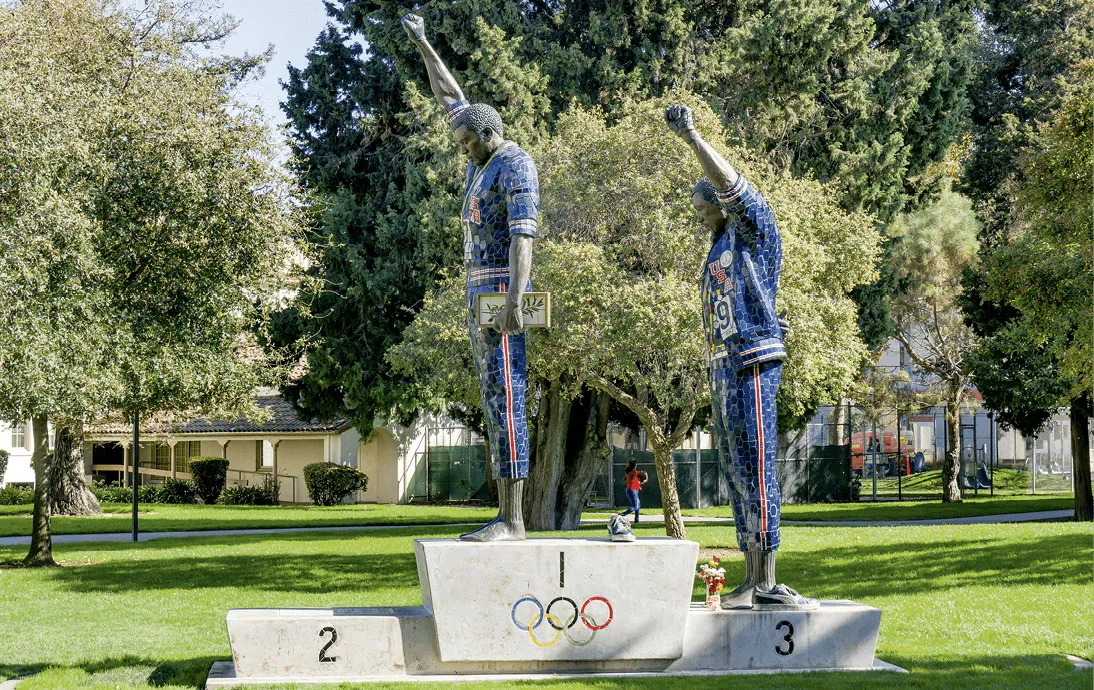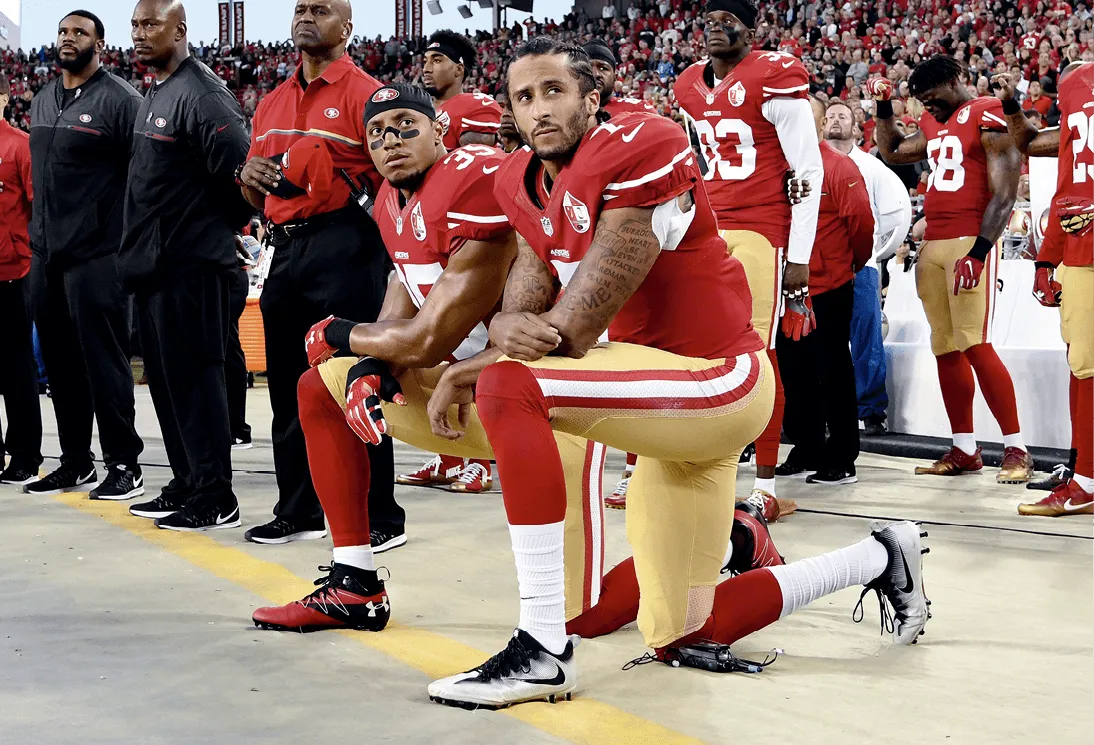Unit 13
Activity 3 - Group
Differentiation
A Silence that Speaks Volumes
Ressource affichée de l'autre côté.
Faites défiler pour voir la suite.
Faites défiler pour voir la suite.
Group 1
Each group is in charge of a document. Study it and
Ressource affichée de l'autre côté.
Faites défiler pour voir la suite.
Faites défiler pour voir la suite.
Iconic Olympic protesters honored at White House, CBS Evening News, 2016.
Ressource affichée de l'autre côté.
Faites défiler pour voir la suite.
Faites défiler pour voir la suite.
Picture


Ressource affichée de l'autre côté.
Faites défiler pour voir la suite.
Faites défiler pour voir la suite.
Group 2
Each group is in charge of a document. Study it and
Ressource affichée de l'autre côté.
Faites défiler pour voir la suite.
Faites défiler pour voir la suite.
Taking a stand by bending a knee: How Colin Kaepernick started a movement, Al Jazeera English, 2017.
Ressource affichée de l'autre côté.
Faites défiler pour voir la suite.
Faites défiler pour voir la suite.
Picture


Ressource affichée de l'autre côté.
Faites défiler pour voir la suite.
Faites défiler pour voir la suite.
Questions
Each group is in charge of one picture and one video.
1
Using the picture and the video, sum up who these men were, and how their action became significant.2
How do you feel about their action? Why?Useful vocabulary
I find their action... It struck me because... It really put forward the... It really emphasized...
Let's talk this out!
Group work
Mediation
3
What are the common points between these people? Justify your answer.
4
Was it an effective means to denounce the situation? Why or why not?
Useful vocabulary
I think / don't think it was effective because... I find it highly thought-provoking since it... To my mind, there are better ways to...
Ressource affichée de l'autre côté.
Faites défiler pour voir la suite.
Faites défiler pour voir la suite.
Toolbox
- challenging (adj.)
- be fed up with sthg. (exp.)
- clenched fists (exp.)
- take a knee (exp.)
- activist (n.)
- athlete (n.)
- sit-in (n.)
Ressource affichée de l'autre côté.
Faites défiler pour voir la suite.
Faites défiler pour voir la suite.
Les pronoms relatifs
Un pronom relatif commence une proposition subordonnée relative. Il change en fonction de l'antécédent. Il peut être :
- Sujet : MLK was a pastor who / that was also a civil rights activist.
- Objet : The sit-in which / that I told you about took place in Greensboro, NC.
- Possessif : C. Kaepernick is an African-American athlete whose protest gesture will be memorable.
•
Ressource affichée de l'autre côté.
Faites défiler pour voir la suite.
Faites défiler pour voir la suite.
Guess Who
Select one activist you have heard about in these documents. Then, describe them to your classmates without giving a name. Your classmates compete to guess who you are talking about.
Ressource affichée de l'autre côté.
Faites défiler pour voir la suite.
Faites défiler pour voir la suite.
Over to you!
Ressource affichée de l'autre côté.
Faites défiler pour voir la suite.
Faites défiler pour voir la suite.
Une erreur sur la page ? Une idée à proposer ?
Nos manuels sont collaboratifs, n'hésitez pas à nous en faire part.
j'ai une idée !
Oups, une coquille
